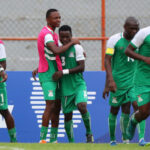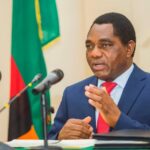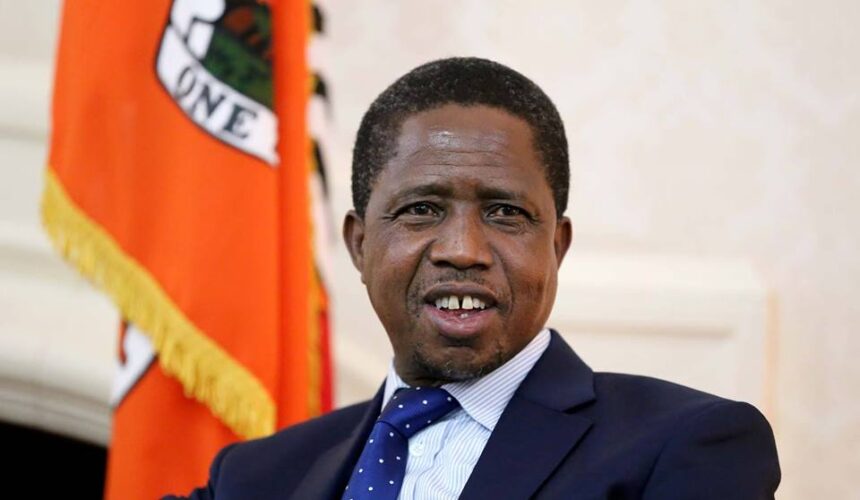Patriotic Front (PF) faction Secretary General Raphael Nakacinda has revealed that former president Edgar Lungu is currently out of the country, taking what he described as a much-needed break from what he termed as “disrespect and aggressive attempts” to treat him like an ordinary citizen.
Speaking during an appearance on Diamond TV’s Diamond Live show on Monday, Nakacinda said Lungu’s temporary departure from Zambia was a collective decision made by his allies, aimed at allowing the former head of state to rest after enduring what they see as continued political harassment.
“The only thing I can tell you is that President Edgar Lungu, by God’s grace, is in good health, and he is out of the jurisdiction because we have collectively, deliberately decided that he needed a bit of a break from all the nonsense he was subjected to because of the disrespect, dishonour, and aggressive approach,” Nakacinda explained.
The PF official criticized what he sees as targeted efforts to undermine Lungu’s legacy and status as a former president, suggesting that his treatment has lacked the dignity accorded to someone who once held the country’s highest office.
Nakacinda also issued a warning to Zambians, saying they should brace themselves for more politically-motivated arrests, particularly under the Cybersecurity and Cybercrimes Act. He alleged that the law is being weaponized against opposition voices and former government officials.
“We expect more arrests, and unfortunately, they will be carried out under the guise of cybercrime laws. It is clear that this legislation is being used selectively to silence critics and intimidate political opponents,” he said.
His remarks come amidst growing political tension and accusations of shrinking democratic space in Zambia, particularly concerning the application of laws that critics claim are being used to stifle dissent.
Nakacinda’s comments have stirred renewed debate about the state of political freedoms and the treatment of former leaders in the country, as observers watch closely how these dynamics will shape Zambia’s democratic landscape going forward.






